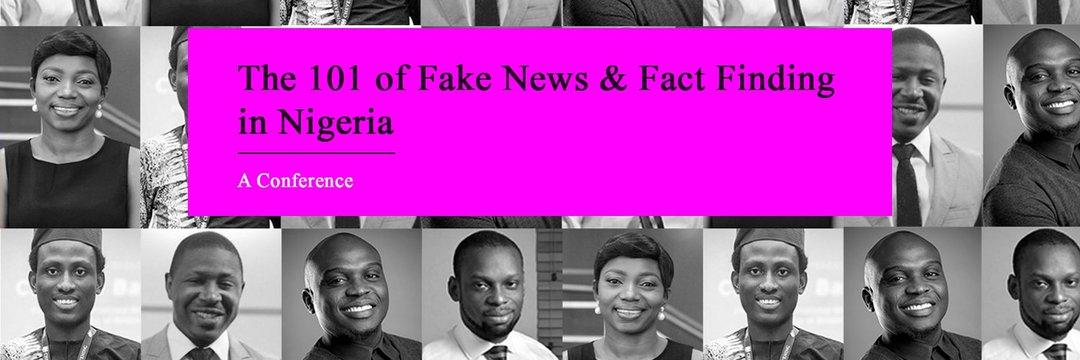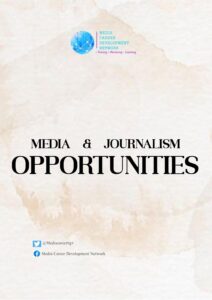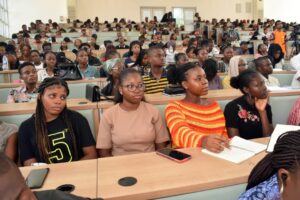By Oyinlola Awonuga
A fact-checker, and Nigerian Editor of Africa Check, Mr. David Ajikobi has advised journalists and social media influencers to always check their facts before publishing.
Ajikobi made this statement during a recent conference for journalists at the Goethe Institut in Lagos.
The event aimed at training journalists on fact-checking had participants from media organizations in Lagos.
Facilitating a session, Ajikobi said journalists must learn how to use the available facilities on their smartphones to fact-check.
“Tools to spot and debunk fake news are on your smartphones,” he noted, stating further that “Fact-checking tools are series of systems and processes you can apply to any story, anywhere, anytime to spot fake news.
“The first step to fact-check fake news is to check for accuracy and time. Consider the source, read beyond, check the author, check supporting sources, check the date, confirm if it is a joke, check your biases and ask the experts,” he said.
He, however, advised participants to be smart and endeavour to stop and reflect at various times.
He further clarified the terms ‘misinformation’ and ‘disinformation’ and the consequences. “Misinformation is the act of disseminating incorrect news while disinformation is the act of intentionally disseminating false news,” he lectured, adding that, “Fake news is any news completely fictional, deliberate, intended to generate profit through clicks etc.”
Ajikobi also stated that 100 per cent of the cause of the recent xenophobic attacks in South Africa originated from fake news pushed out through pictures and videos.
According to Ajikobi, “Journalists are naturally biased people, you can’t always get rid of bias but admitting and acknowledging bias means your work will be more transparent.
Also at the conference, Channels Television anchor and producer, Victor Mathias, emphasised on a technology called “Deep-Fake” an app that can make an unreal content real.
“Deep-fake is a technology that quickly sharpens the world. Technology is shaking some tables, in the process, it has broken some. It was coined in 2017 as a combination of deep hearing and fake videos,” he explained.
Explaining further he said, “With the advancement of artificial intelligence, machine learning, you use them to put people on where they are not. Everybody is upping their game, hackers are also upping their game so journalists should up their profession as well.”
Online Editor of The Guardian newspaper, Lolade Nwaneze explained how to build a newsroom culture to fight fake news.
Nwaneze advised journalists on ways to combat the culture of fake news. According to her, journalists should cover all grounds when writing their stories.
“Question your sources, question your biases, use a checklist, and understand the dynamics.
“Lecturing further, she said the media has democratised and there is no more monopoly of sources, access or platforms. Everyone has a voice now the question is how loud,” she said.
Investigative Journalist, Fisayo Soyombo at the conference related to fake news gate-keeping and investigative reporting in an era of quickie journalism.
“Journalists should tighten the gates, the gates of newspapers are loose these days, sub-desks are almost extinct. The editing lines have to return. Goodbye to quickies. We are in the era of breaking the news.
“It is the season of two paragraphs one story. To subdue fake news reporting must be done without compromising the tenets of investigative journalism,” he explained.
The investigative journalist however concluded by advising journalists to embrace media literacy while media owners must be interested as well.
“Journalist must be interested in Media literacy and media owners need to join the conversation and participate in seminars like this,” he said.



